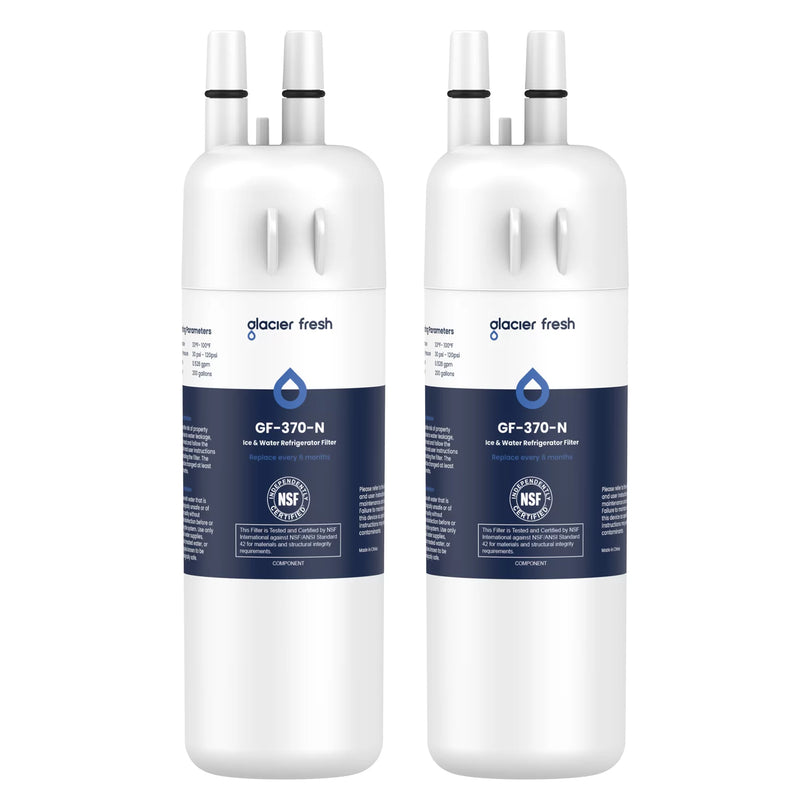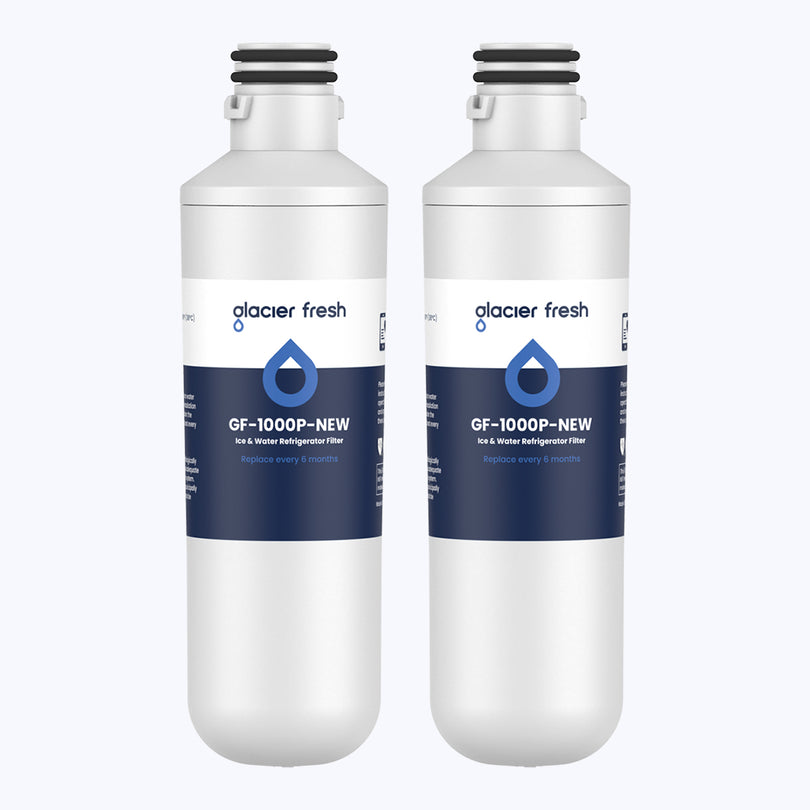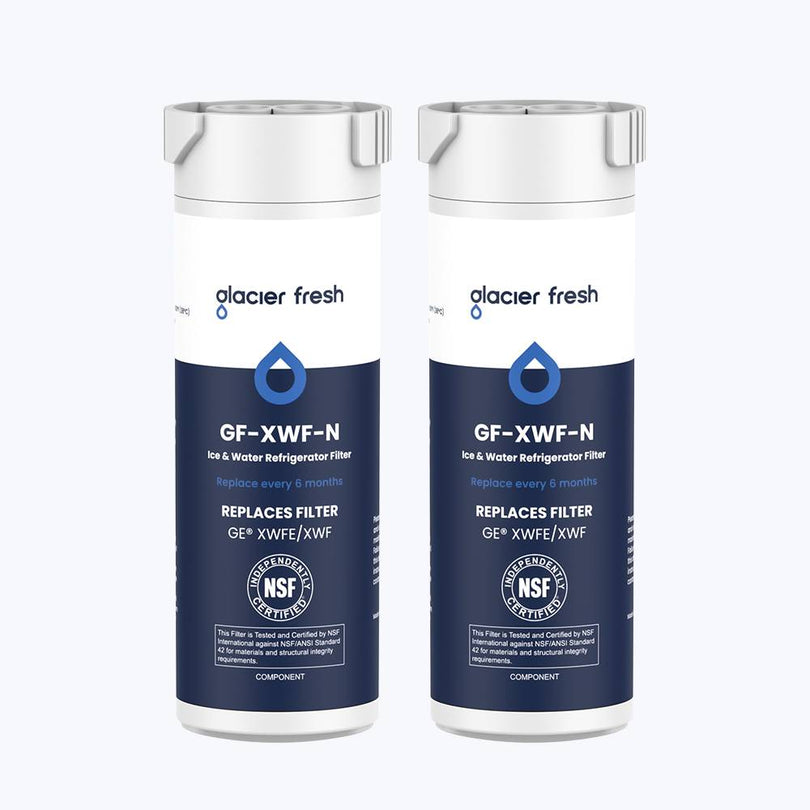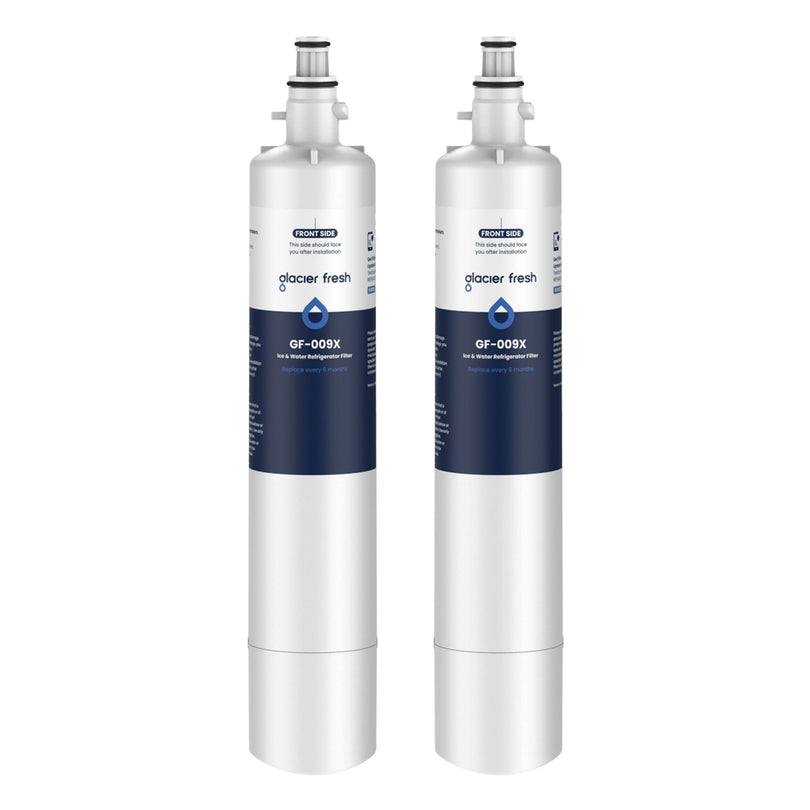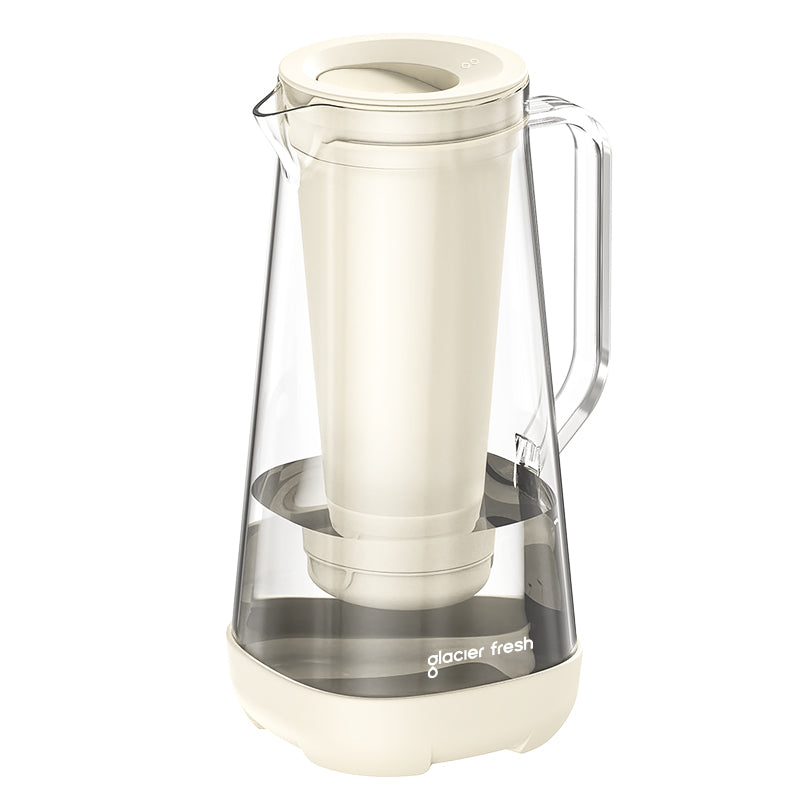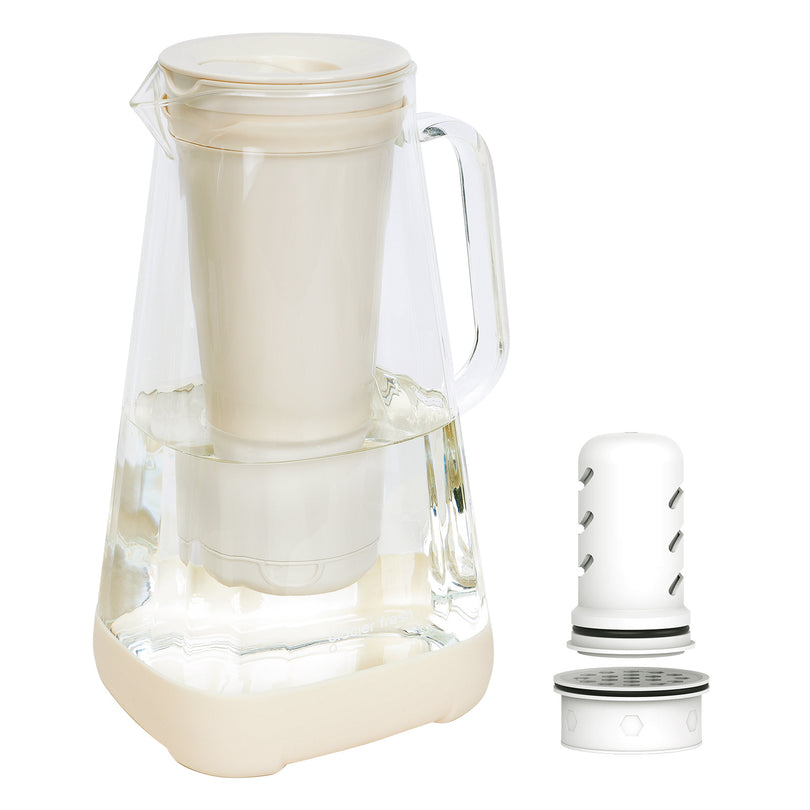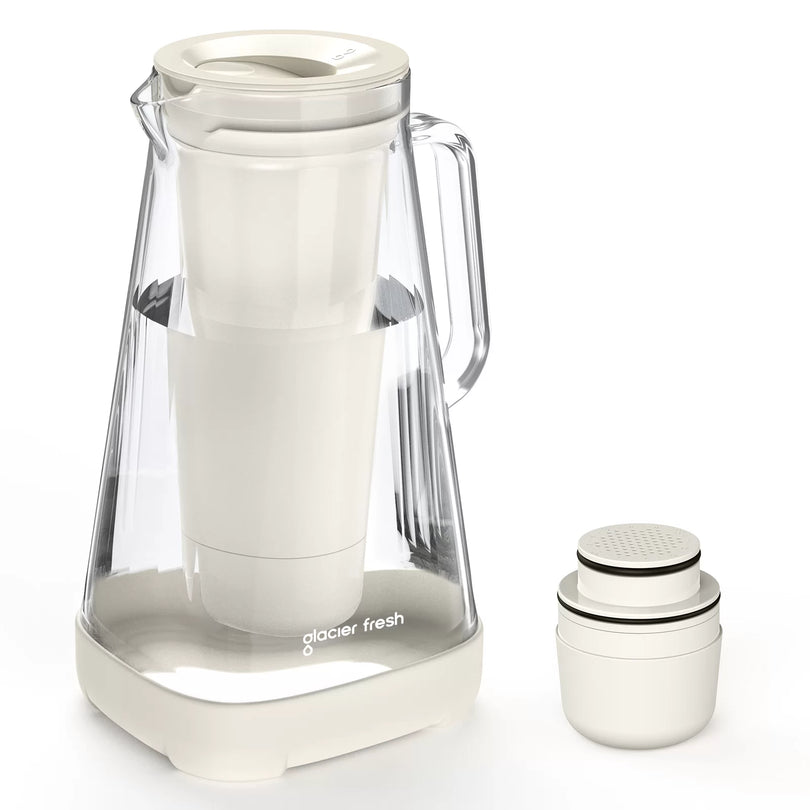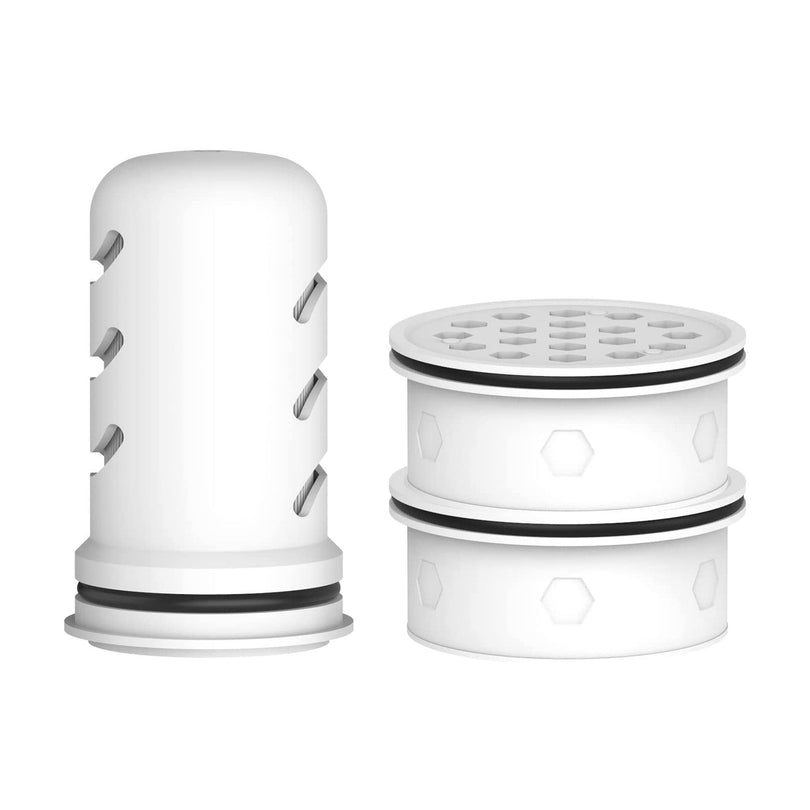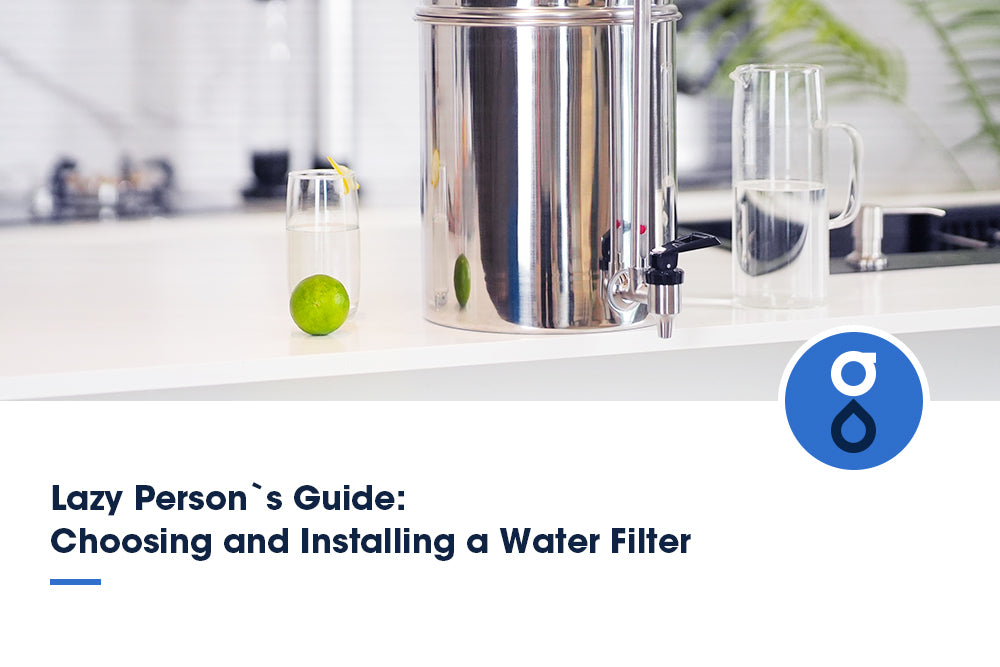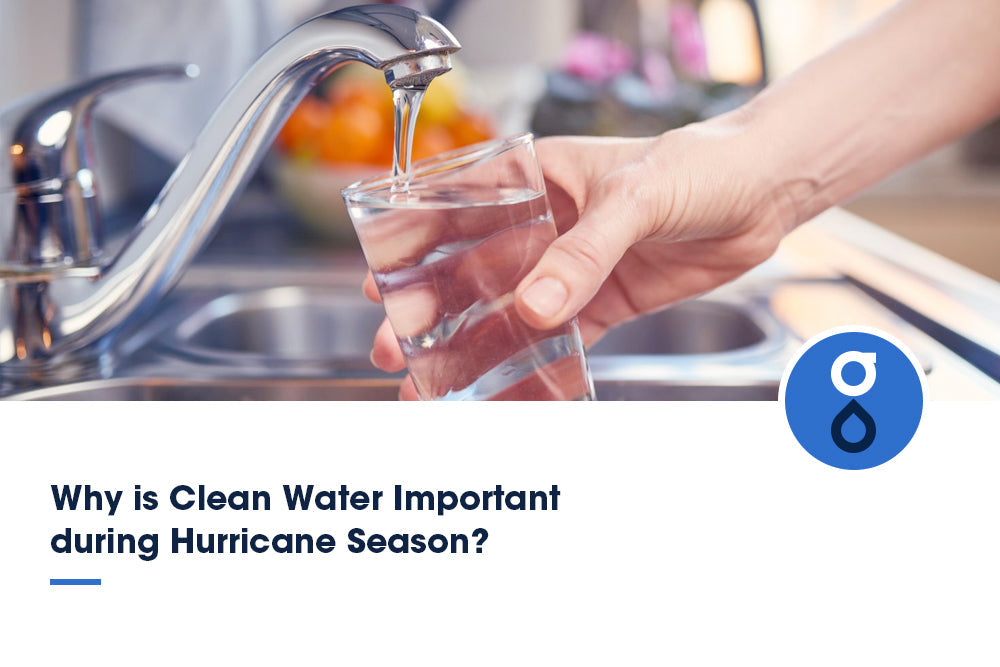Table of Contents:
Bewerten Sie Ihre Wasserqualität
Identifizieren Sie Ihren Wasserfilterbedarf
Arten von Wasserfiltern zur Auswahl
Faktoren, die bei der Auswahl von Wasserfiltern zu berücksichtigen sind
Überlegungen zu den Installationsoptionen für Wasserfilter
FAQs
Abschluss
Möchten Sie Ihre Wasserqualität ohne großen Aufwand verbessern? In diesem Leitfaden für Faule zeigen wir Ihnen, wie Sie einen passenden Wasserfilter auswählen und installieren. Bewerten Sie Ihre Wasserqualität, ermitteln Sie Ihre Filteranforderungen und entdecken Sie verschiedene Filtertypen. Berücksichtigen Sie wichtige Faktoren bei der Filterauswahl und informieren Sie sich über die Installationsmöglichkeiten. Keine Sorge, wir unterstützen Sie bei jedem Schritt. Los geht's!
Bewerten Sie Ihre Wasserqualität

Bewerten Sie Ihre Wasserqualität, indem Sie sie testen, bevor Sie einen Wasserfilter installieren. Es ist wichtig, die Wirksamkeit des Filters zu bestimmen und potenzielle Gesundheitsrisiken zu identifizieren, bevor Sie sich für sauberes Wasser darauf verlassen.
Es gibt verschiedene Testmethoden, um die Qualität Ihres Wassers zu beurteilen. Identifizieren Sie zunächst Ihre Wasserquelle, sei es ein Brunnen, die kommunale Versorgung oder eine andere Quelle. Jede Quelle kann unterschiedliche Schadstoffe enthalten, die analysiert werden müssen. Zu den häufigsten Schadstoffen zählen Bakterien, Viren, Schwermetalle, Pestizide und Chemikalien.
Um die Wirksamkeit Ihres Wasserfilters zu beurteilen, können Sie eine Schadstoffanalyse durchführen. Dazu wird eine Wasserprobe entnommen und zur Untersuchung an ein Labor geschickt. Das Labor analysiert die Probe auf bestimmte Schadstoffe und erstellt einen detaillierten Ergebnisbericht. Mithilfe dieser Analyse können Sie feststellen, ob Ihr Wasserfilter die Schadstoffe aus Ihrer Wasserquelle effektiv entfernt.
Die Prüfung der Wasserqualität vor der Installation eines Wasserfilters ist unerlässlich, um Ihre Gesundheit und Sicherheit und die Ihrer Familie zu gewährleisten. Indem Sie die Wirksamkeit des Filters beurteilen und mögliche Gesundheitsrisiken identifizieren, können Sie fundierte Entscheidungen über den benötigten Wasserfiltertyp treffen.
Identifizieren Sie Ihren Wasserfilterbedarf

Um den richtigen Wasserfilter für Ihre Bedürfnisse zu finden, sollten Sie die Verunreinigungen in Ihrer Wasserquelle und deren potenzielle Gesundheitsrisiken berücksichtigen. So können Sie die spezifischen Eigenschaften und Fähigkeiten Ihres Wasserfilters ermitteln. Hier sind einige wichtige Faktoren, die Sie berücksichtigen sollten:
- Budgetbeschränkungen: Bestimmen Sie, wie viel Sie für einen Wasserfilter ausgeben möchten. Dies hilft Ihnen, Ihre Auswahl einzugrenzen und einen Filter zu finden, der zu Ihrem Budget passt.
- Gesundheitliche Bedenken: Berücksichtigen Sie alle spezifischen gesundheitlichen Bedenken, die Sie möglicherweise haben. Wenn Sie beispielsweise ein geschwächtes Immunsystem haben, benötigen Sie möglicherweise einen Filter, um Bakterien und Viren aus Ihrem Wasser zu entfernen.
- Umweltauswirkungen: Berücksichtigen Sie die Umweltauswirkungen Ihres gewählten Wasserfilters. Suchen Sie nach Filtern, die umweltfreundlich sind und einen minimalen CO2-Fußabdruck hinterlassen.
- Wartungsaufwand: Überlegen Sie, wie viel Zeit und Aufwand Sie in die Wartung Ihres Wasserfilters investieren möchten. Manche Filter erfordern regelmäßige Filterwechsel oder Reinigungen, andere sind wartungsarm.
- Wasserverbrauch: Bewerten Sie Ihren Wasserverbrauch, um die benötigte Kapazität und Durchflussrate eines Wasserfilters zu bestimmen. Wenn Sie einen großen Haushalt haben oder viel Wasser verbrauchen, benötigen Sie möglicherweise einen Filter mit höherer Kapazität und schnellerer Durchflussrate.
Arten von Wasserfiltern zur Auswahl

Informieren Sie sich über die verschiedenen verfügbaren Wasserfiltertypen, um eine fundierte Entscheidung zu treffen, die Ihren Bedürfnissen entspricht. Es stehen verschiedene Optionen zur Auswahl, jede mit ihren Vor- und Nachteilen. Hier ist eine Vergleichstabelle, die Ihnen hilft, die verschiedenen Wasserfiltertypen zu verstehen:

Schwerkraft-Wasserfiltersysteme werden häufig verwendet, um Geschmack und Geruch von Wasser zu verbessern, sind jedoch möglicherweise weniger effektiv bei der Entfernung aller Verunreinigungen. Umkehrosmosefilter können zwar eine Vielzahl von Verunreinigungen entfernen, verursachen aber eine erhebliche Wasserverschwendung. Die UV-Sterilisation ist eine wirksame Methode zur Abtötung von Bakterien und Viren, beseitigt jedoch keine anderen Verunreinigungen.
Keramikfilter eignen sich hervorragend zum Filtern von Bakterien und Sedimenten, erfordern aber regelmäßige Reinigung und Wartung. Sedimentfilter sind zwar für die Entfernung großer Partikel und Sedimente konzipiert, können aber kleinere Verunreinigungen nicht beseitigen. Berücksichtigen Sie Ihre spezifischen Bedürfnisse und wählen Sie einen Wasserfilter, der diese effektiv erfüllt.
Faktoren, die bei der Auswahl von Wasserfiltern zu berücksichtigen sind
Berücksichtigen Sie bei der Auswahl eines Wasserfilters Ihre spezifischen Bedürfnisse und Vorlieben. Berücksichtigen Sie die folgenden Faktoren, um eine fundierte Entscheidung zu treffen:
- Wasserquelle: Bestimmen Sie die Qualität Ihrer Wasserquelle. Handelt es sich um Leitungswasser , Brunnenwasser oder Regenwasser? Wenn Sie die Quelle kennen, können Sie einen Filter auswählen, der bestimmte Verunreinigungen effektiv beseitigt.
- Schadstoffentfernung: Identifizieren Sie die Schadstoffe, die Sie aus Ihrem Wasser entfernen möchten. Verschiedene Filter sind auf bestimmte Schadstoffe wie Chlor, Blei, Bakterien oder Pestizide ausgelegt. Achten Sie auf Filter, die für die Entfernung der von Ihnen beanstandeten Schadstoffe zertifiziert sind.
- Wartungsaufwand: Berücksichtigen Sie den Wartungsbedarf des Filters. Manche Filter erfordern häufigen Patronenwechsel oder eine regelmäßige Reinigung. Überlegen Sie, ob Sie bereit sind, Zeit und Mühe in die Wartung des Filters zu investieren.
- Kostenvergleich: Vergleichen Sie die Anschaffungskosten des Filters sowie die laufenden Kosten für Ersatzfilter, Kartuschen oder andere Teile. Berücksichtigen Sie die langfristigen Kosten, um sicherzustellen, dass der Filter in Ihr Budget passt.
- Umweltverträglichkeit: Bewerten Sie die Umweltauswirkungen des Filters. Achten Sie auf Filter aus nachhaltigen Materialien mit geringem CO2-Fußabdruck. Wählen Sie Filter, die recycelbar sind oder eine lange Lebensdauer haben, um Abfall zu reduzieren.
Überlegungen zu den Installationsoptionen für Wasserfilter

Prüfen Sie verschiedene Installationsoptionen für Ihren Wasserfilter, um eine nahtlose Integration in Ihr Zuhause zu gewährleisten. Bei der Auswahl der Installationsmethoden haben Sie zwei Hauptoptionen: Selbstmontage oder professionelle Installation.
Für handwerklich begabte Menschen mit etwas Erfahrung im Sanitärbereich kann die Selbstinstallation eine kostengünstige Lösung sein. Selbstmontagen werden in der Regel mit einer ausführlichen Anleitung geliefert und können je nach Wunsch unter der Spüle oder auf der Arbeitsplatte installiert werden. Untertischfilter sind unauffällig und platzsparend, während Auftischfilter tragbar und einfach zu installieren sind.
Wenn Sie sich mit Heimwerkerprojekten nicht wohl fühlen oder mehr Fähigkeiten benötigen, ist eine professionelle Installation die beste Lösung. Die Beauftragung eines Fachmanns stellt sicher, dass die Installation korrekt durchgeführt wird und minimiert das Risiko von Undichtigkeiten oder Schäden.
Sie können Sie auch bei der optimalen Platzierung Ihres Wasserfilters beraten und sicherstellen, dass er ordnungsgemäß an Ihr vorhandenes Sanitärsystem angeschlossen wird. Letztendlich hängt die Entscheidung zwischen einer Selbstinstallation und einer professionellen Installation von Ihrem Komfortniveau und Ihrem Budget ab.
FAQs
Ist es notwendig, meine Wasserqualität zu testen, bevor ich mich für einen Wasserfilter entscheide?
Es ist wichtig, die Wasserqualität zu testen, bevor Sie sich für einen Wasserfilter entscheiden. Regelmäßige Tests stellen sicher, dass Sie die Verunreinigungen kennen und einen Filter auswählen können, der auf diese spezifischen Probleme abgestimmt ist.
Gibt es für verschiedene Arten von Wasserfiltern spezielle Wartungsanforderungen?
Wasserfilter haben unterschiedliche Typen und unterschiedliche Wartungsanforderungen. Es ist wichtig, häufige Probleme und Tipps zur Fehlerbehebung zu kennen. Achten Sie außerdem auf die Filterlebensdauer und die Reinigungsmethoden.
Abschluss
Wenn Sie also eher faul sind und die Qualität Ihres Wassers verbessern möchten, kann die Auswahl und Installation eines Wasserfilters eine machbare Aufgabe sein. Indem Sie Ihre Wasserqualität beurteilen und Ihre Bedürfnisse identifizieren, können Sie ganz einfach den richtigen Filtertyp für sich auswählen. Denken Sie daran, Faktoren wie Wartung, Kosten und Installationsmöglichkeiten zu berücksichtigen. Mit ein wenig Aufwand können Sie sauberes und gefiltertes Wasser mit minimalem Aufwand genießen.

